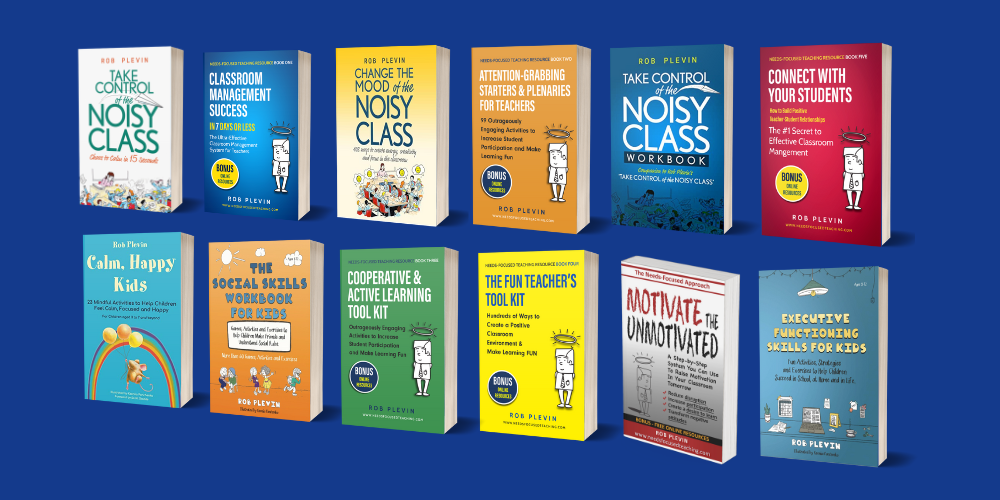The Danger of Using Rewards for Positive Reinforcement

This extract from my book Take Control of the Noisy Class (available on Amazon) highlights some of the problems associated with an over-reliance on reward schemes and other 'control methods' in the classroom. (the book also goes on to suggest other, more appropriate ways of acknowledging positive behaviour).
The most commonly used motivational strategies in schools usually involve some kind of reward programme where, typically, points and prearranged prizes are awarded to students as they make progress along a chart or towards a points total.
I have worked in several settings where programmes like this have had a very positive, almost miraculous, effect, particularly on the behaviour of students. Sadly, these effects were always short lived for a significant percentage of the students they were set up to help and their efficacy waned with time.
No matter how elaborate or brightly painted the star chart and no matter how fantastic the prizes, some students will either become bored or frustrated with the system or the prearranged rewards. For many students, rewards are just not a suitable long term strategy. One of the main problems with reward programmes is that they don’t take into account students who lack the capacity or skills to complete a designated task or meet a required level of work. They just assume that the only reason they aren’t working is because they don’t want to.
For example, if you offer a group of teenagers a crisp £5 note each to copy some numbers and letters from the board, most of them will be finished in no time. But if you offer the same £5 reward in return for performing some advanced algebra with the numbers and letters they have just copied down, you will get a much different result. Those who have the skills to do the task may work a little harder to get the reward, but for those who don’t have a clue about algebra the reward won’t help at all. If anything, seeing other students happily working their way towards some extra money for the weekend – when they have no hope of doing so – will only add to their frustration.
Similarly, what about a student who is offered a reward to bring in his homework? If he lives in an acutely chaotic home where school is viewed negatively by other family members and he has never been taught even the most basic of time management skills, the reward won’t help him. It won’t make his family members support him and it won’t teach him the required organisational skills to make the time to sit down to do his homework.
You can probably find a simple example of this in action in your own life too – whenever you lose a personal item, for instance. The prize or reward is finding the lost item, and if it’s a particularly valuable or treasured item then the prize is great. Yet no matter how much you want to find the item, if you don’t know how or where to find it, you’re at a disadvantage. Your valuable reward can’t improve your ability to locate it.
During courses I often use the promise of cash rewards for a series of impossible tasks to hammer home this message. Participants are offered increasingly valuable cash prizes if they manage to complete a series of puzzles. But they can’t do it, no matter how much they want to. It makes no difference how much I increase the prize fund either – they can’t complete the task because they don’t have the required knowledge. Bottom line: if the skills are lacking, the reward won’t work.
Another problem with rewards is that they can divert attention from the actual task in hand. When the reward itself becomes the goal, the student loses interest in the task and is unlikely to feel any benefit or derive any joy from completing it for its own sake. Also, when a student becomes fixated on an incentive in this way, they become reliant on the view of the teacher or whoever is responsible for giving the reward, and therefore independence isn’t promoted.
It’s bad enough that rewards can stifle independence and lead to arguments but the biggest problem has to be that they only have a temporary impact. Once the treats (or the person giving the treats) have gone, the negative behaviour resumes. At worst they help to build and sustain a society of young people who will only do as they are asked as long as they are given something of value in return: ‘Sure, I’ll do as you ask but what’s in it for me? What are you going to give me?’
Do we want a society like that? Of course not, so we need to get away from relying on rewards based systems. Our aim must be to teach appropriate behaviour and encourage students to behave appropriately for the right reasons and for the intrinsic rewards such behaviour brings – not because they have been promised a nice treat.
Despite these qualifications, rewards themselves aren’t all bad if offered wisely – we just have to get the timing right. You see, when rewards are promised in advance (‘Do this and I’ll give you this’) they are nothing more than bribes. But when they are unexpected and are given after an increased effort or positive change in behaviour, they can mark the moment very well and reinforce the behaviour we want to see.
Student effort should be recognised and celebrated, and rewards can be used to this end. But we can do better than to rely entirely on bribery where treats are promised in advance of an achieved target, as is the case with most school reward systems.
Learn more from Needs Focused Teaching…
Search for our books on Amazon right now:




